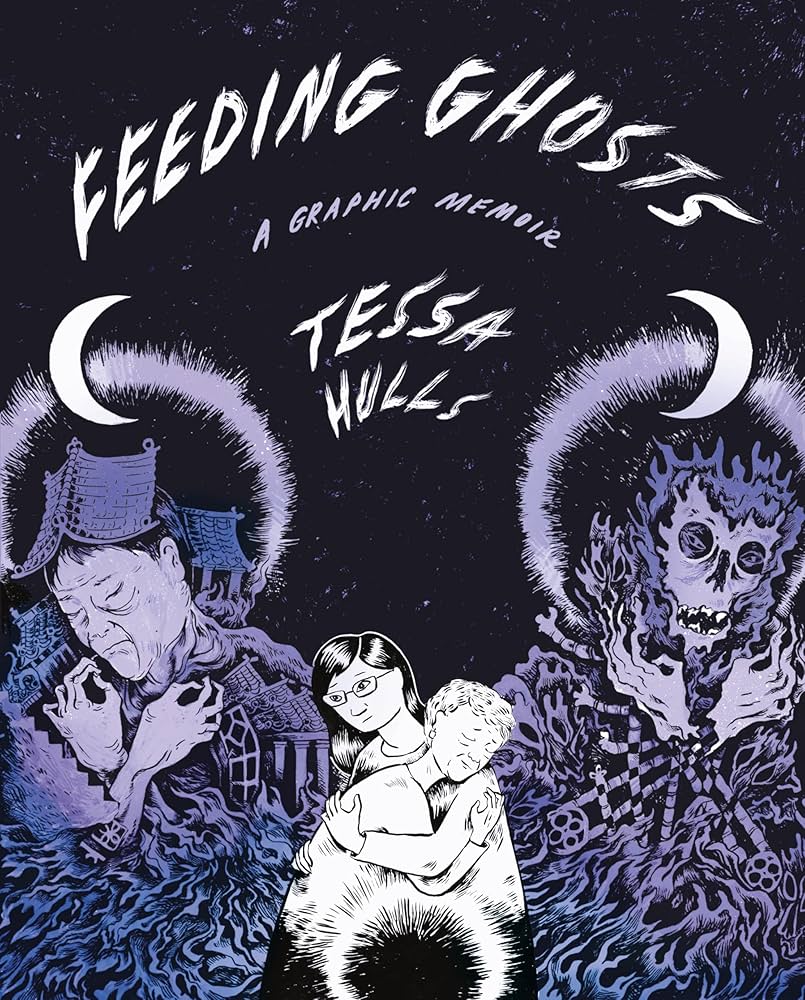Earlier this year, Tessa Hulls’ graphic memoir Feeding Ghosts became the second graphic novel to win a Pulitzer Prize, 33 years after Art Spiegelman’s Maus received a special citation in 1992.
Both titles explore their creator’s journey of piecing together family stories while dealing with strained relationships. The artists use rich visual metaphors and detailed examinations of the social, political, and cultural context surrounding events to tell compelling and deeply impactful stories. As Hulls reflects in her book: “what is a family if not a shared story?”
For memoir fans who haven’t ventured into the graphic medium, these titles are a great place to start exploring the powerful ways that comics can be used to present complex, emotional, and deeply personal narratives while sharing researched insights into historical events.

Maus
by Art Spiegelman
Widely considered one of the greatest graphic novels ever written (though the creator prefers the terms “comics” or “comix” to describe his work!), Maus tells the story of Art Spiegelman’s parents during the Holocaust and their eventual journey to America. At the same time, the book explores the creator’s difficult relationship with his father through snapshots of their interviews for the project and Spiegelman’s experiences growing up and working to piece together this narrative.
Maus in many ways heralded a new genre of comics by showing the potential for the medium to be used to explore real-world events in creative and honest ways without resorting to clichés or overly sentimental perspectives.
A line that lingers with me and encapsulates one of the themes that runs through the story comes from a conversation shown between the author and his therapist, another Holocaust survivor: “life always takes the side of life, and somehow the victims are blamed. But it wasn’t the BEST people who survived, nor did the best ones die. It was RANDOM!” (p. 205). Spiegelman wrestles with this idea as he reflects on and constructs a powerful visual representation of his family story.
If you haven’t read Maus yet, I highly recommend you take the time to check it out and see why it has become a modern classic.
View Book
Feeding Ghosts
by Tessa Hulls
“Maybe this is what it means to be the child of immigrants—forced to bear witness as the first generation far enough from the pain to be able to see how deeply it is there” (p. 10).
Created over the course of nearly a decade of research and personal reflection, Tessa Hulls’ memoir explores three generations of women navigating grief, love, fear, and identity against the backdrop of modern Chinese history.
As she grew up, Tessa watched her mother care for grandmother, a journalist who fled to Hong Kong with her young daughter after the 1949 Communist victory in China. After writing a bestselling memoir, she had a breakdown that left her committed to a mental institution. To escape her mother’s overbearing fear and the weight of her family’s unexamined trauma and mental illness, Tessa eventually leaves home. Eventually, her roaming starts to feel like running away and she returns to face the history that shaped her family.
Hulls brings the reader along on her own journey, retracing a trip to China with her mother to rediscover sites of significance, interviews with countless family members, and meticulous research into historic documents, newspaper articles, and her grandmother’s memoir. As Hulls tells the reader, “The scale of what I’ve had to learn for this book has been so massive and so drawn out that I sometimes forget I began with only my three paltry grandmother facts: China, writer, crazy” (p 81).
It doesn’t take long to become lost in this book. With drawings reminiscent of etching, the inky pages flow together and weave a truly mesmerizing story. I’ve read a lot of graphic memoir, and this is one that will stick with me.
View Book